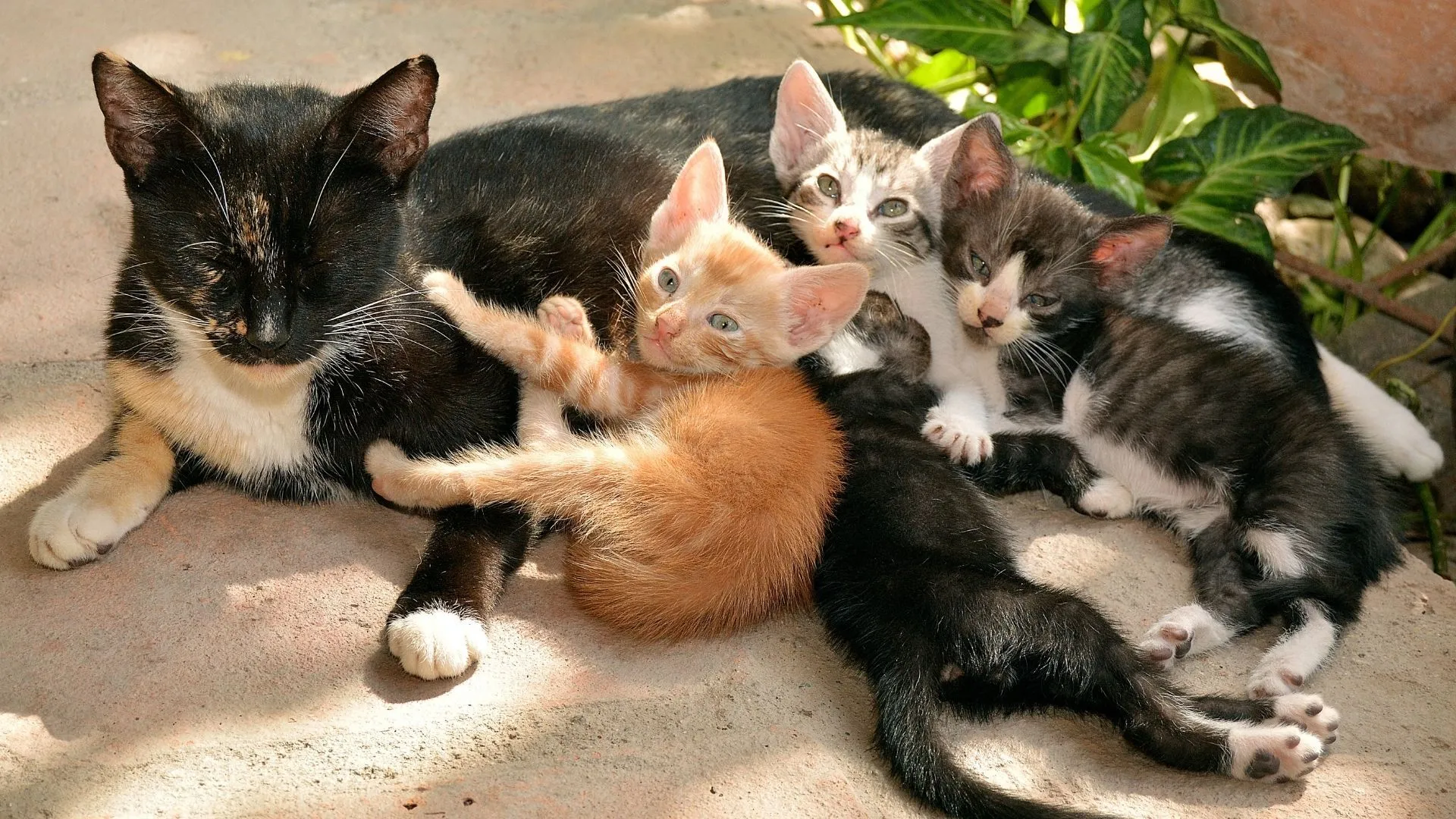Socialization of cats, education to become a pet
First stage of socialization: week 2 till week 7/9
‘’Pet education’’: To come in contact with everything they have to deal with, later in life, through repeated neutral and positive experiences. These kinds of blueprints can only be formed in this first period. After this there’s barely or no retake.
- People (in all types and sizes) at least half an hour a day, spread over several short periods with different people
- Being transported in a carrier
- Being picked up and checked out by a vet
- Brush teeth and groom
- Noises such as, vacuum cleaner, doorbell, music
- Other pets like dogs
Kittens learn most from their mother, also by just watching (observational learning). That’s why it’s important that the mother is relaxed around people as well.
Second stage of socialization: education social skills of the cat
Social behavior of cats to other cats is not congenital, they have to learn! This happens in week 8 till 16 through social play. In this way they also learn boundaries.
Kittens play mostly with each other, kittens that are alone during this period develop a long-life social handicap which makes it very hard for them to interact with other cats.
Weaning process
Weaning is a natural and gradual process in which the kitten becomes less and less depending on its mother. This is not just about the milk they get from their mother.
This process starts in week 3/4 and lasts for about half a year.
In the first 3 weeks, the kittens can drink limitless. After this, there’s a slight change, the kittens will be introduced to solid food. The mother decides if, and how long the kittens are allowed to drink. This stimulates their independence, and they’ll learn to deal with frustration.
After about 3 months, the milk becomes less nutritious, sometimes there even is no milk anymore. It’s not that important for the kittens, the sucking itself is a self-rewarding action. It gives a nice feeling and calms.
When kittens are 16 weeks old, they’re capable of survive on their own (in the wild).
Experience shows that a longer nesting period gives kitten more change to become animals that are emotionally stable, feel better and explore the world with more confidence!
